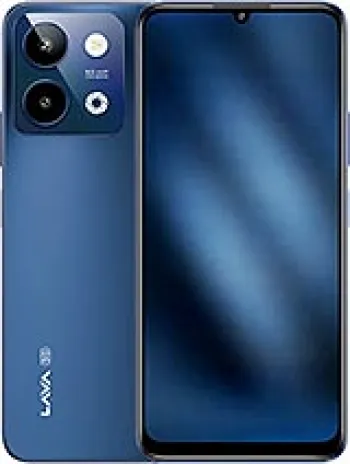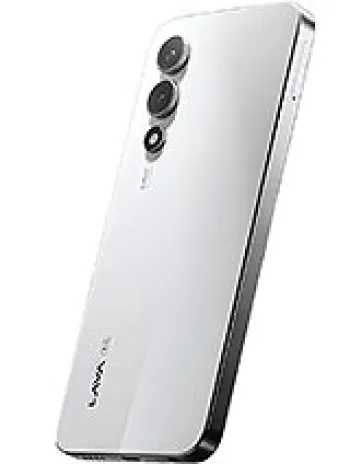
Design and Build
The Lava Iris 400Q was released in August 2014, offering a compact design with dimensions of 129 x 63 x 10 mm. With dual SIM support, this phone is practical for users who need to manage two numbers in a single device. The device is available in classic colors such as black and white, giving it a timeless look. Although the weight is unspecified, the device's ergonomic dimensions make it easy to handle and suitable for one-handed use.
Display
The phone features a 4.0-inch TFT display with a resolution of 480 x 800 pixels. This provides a pixel density of approximately 233 ppi, which is decent for everyday tasks and ensures that text and images appear sharp and clear. The screen-to-body ratio is around 56.0%, offering a compact viewing experience for those on the go.
Performance
Under the hood, the Lava Iris 400Q is powered by a quad-core 1.2 GHz processor. Coupled with 512MB of RAM, the device is designed to handle basic smartphone tasks such as calling, texting, and light app usage. While it may not cater to high-end gaming experiences, it is adequate for users with modest smartphone needs. The inclusion of Android 4.4.2 (KitKat) offers a stable operating system environment with access to a host of applications from the Google Play Store.
Storage
The phone comes with 4GB of internal storage, which can be quite limiting given today's storage-heavy applications and media. However, the presence of a microSDHC slot allows users to expand their storage capacity, making room for more photos, music, and apps as needed.
Camera
The Lava Iris 400Q is equipped with a 5 MP rear camera accompanied by an LED flash, which is suitable for taking basic photos and videos. Although it may not excel in low-light situations, it is capable of capturing decent images for social media sharing and everyday photography. The phone also includes a VGA selfie camera, which, while basic, can be used for video calls and quick snapshots.
Battery Life
Featuring a removable Li-Ion 1700 mAh battery, the phone offers up to 153 hours of standby time and up to 9 hours and 10 minutes of talk time. This level of battery performance is standard for phones of this era and should comfortably last a day of typical usage including calls, texts, and occasional web browsing.
Connectivity
The device supports GSM and HSPA network technologies, with 2G bands operating at GSM 900 / 1800 for both SIM slots and 3G bands at HSDPA 2100. Network speeds are reasonable at 384 kbps. Connectivity features include Wi-Fi 802.11 b/g/n for reliable internet access, Bluetooth 4.0 with A2DP for wireless connections, and A-GPS for navigation. The phone also includes a microUSB 2.0 port for data transfer and charging. However, it does not feature NFC technology.
Audio
The phone is equipped with a loudspeaker for audio playback, and a 3.5mm jack is present for those who prefer using wired headphones. The inclusion of an FM radio allows users to listen to local stations without the need for internet connectivity.
Sensors
The Lava Iris 400Q includes basic sensors such as an accelerometer and proximity sensor, which enhance the overall user experience by providing functionality like screen orientation adjustment and automatic screen turn-off during calls.
Conclusion
In conclusion, the Lava Iris 400Q offers a balanced mix of features for entry-level smartphone users. With its compact design, basic camera capabilities, and essential connectivity options, it served as a practical handset during its release back in 2014. Its affordability and dual SIM support made it accessible to a wide range of users, fulfilling the needs of those looking for a simple and reliable device.
Key Features of Lava Iris 400Q
- Dual SIM support for convenience in using two numbers.
- Compact design with 4.0 inches TFT display offering decent resolution of 480 x 800 pixels.
- Powered by a Quad-core 1.2 GHz processor for smooth performance.
- Expandable storage through a microSDHC card slot.
- 5 MP main camera with LED flash.
- Equipped with essential communication features such as Wi-Fi, Bluetooth 4.0, and A-GPS.
- Built-in FM radio and 3.5mm audio jack for multimedia use.
- Removable 1700 mAh battery providing up to 9 hours and 10 minutes of talk time.
- Available in classic Black and White colors.
Disadvantages of the Lava Iris 400Q
- Discontinued and no longer available for purchase.
- Low internal storage of 4GB with only 512MB RAM, limiting performance and multitasking capabilities.
- Outdated Android 4.4.2 (KitKat) operating system with no updates available.
- Low-resolution display (480 x 800 pixels) with basic TFT technology.
- VGA front camera, providing poor selfie quality.
- No NFC support.
- Limited battery capacity of 1700 mAh, which may not last a full day with moderate usage.
- Limited 3G network speed, which is outdated compared to modern 4G and 5G networks.
- Lacks advanced sensors like gyroscope or compass for enhanced user experience.
- No specific mention of weight, indicating potential lack of transparency in full device specifications.

View Also
More Phones
All Rights Reserved +14266 Phones © Mobilawy 2025

























